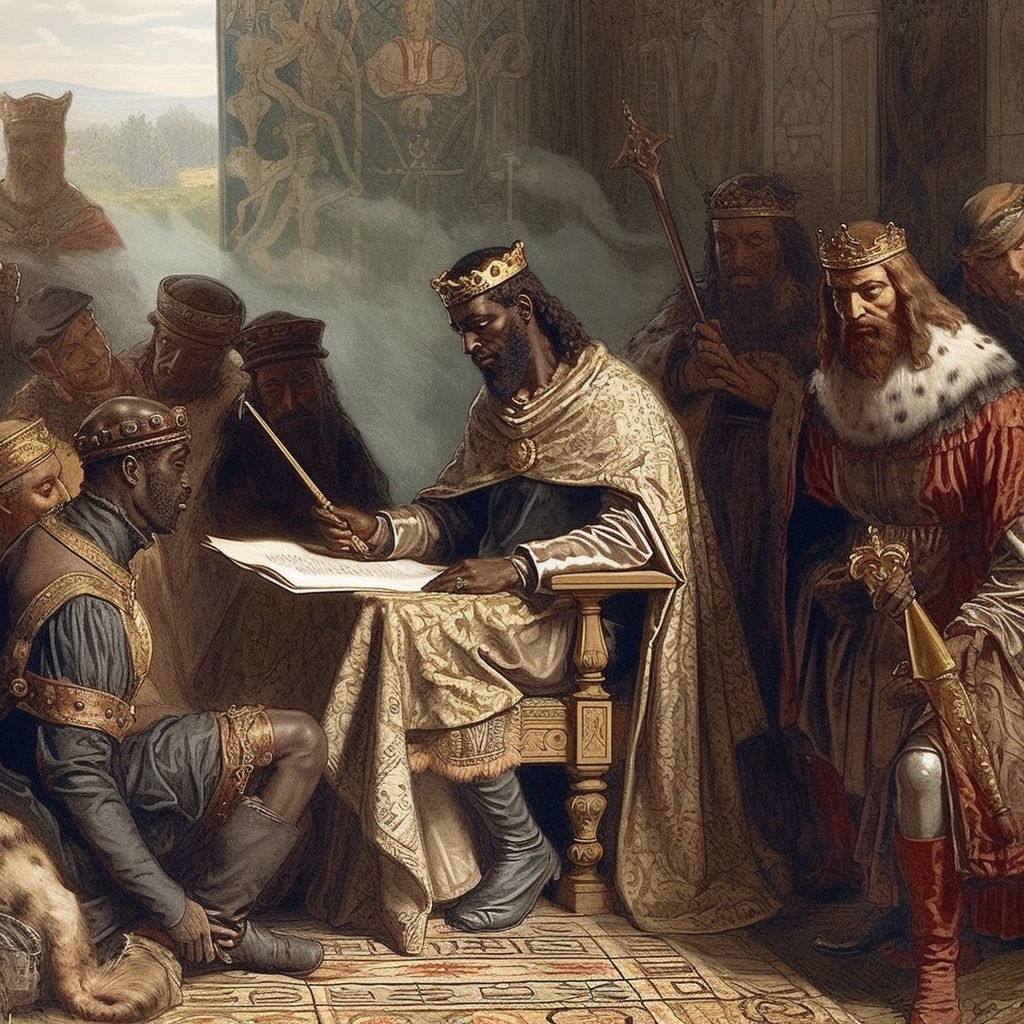Welcome back to “The Forgotten Tales” series, where we uncover the lesser-known stories from the corridors of England’s royal history. Today, we’ll delve into a tale soaked in irony—the story of King John, often viewed as England’s worst king, and the Magna Carta, a cornerstone of constitutional law.
King John’s reign is one shrouded in infamy. Known for his tyrannical rule, he is often labeled as the villain of his era—a monarch who lost large swaths of French territories, imposed heavy taxes, and was embroiled in disputes with the Church. Yet, the unpopularity of his rule led to a significant event that would shape the course of democracy for centuries to come: the signing of the Magna Carta.
Reluctant Birth of Democracy
The Magna Carta, Latin for “Great Charter,” was sealed by King John in Runnymede in 1215. It was a product of the barons’ revolt against John’s arbitrary rule, intended to limit the king’s powers and safeguard their rights. The irony lies in the fact that King John, known for his oppressive rule, was the one to put his seal on this historic document, which would later serve as a beacon of human rights and a precedent for constitutional law.
The Provisions of the Magna Carta
The Magna Carta included clauses on legal rights, protections against illegal imprisonment, access to swift justice, and, most importantly, it established the principle that the king was not above the law. The Magna Carta thus signified a shift in power from the monarchy to the barons, marking an early step towards parliamentary democracy in England.
The Irony
John had never intended to honor the Magna Carta, and he asked Pope Innocent III to annul it, which the Pope did. However, after John’s death, his successors reissued the document (with some alterations), and it eventually became a central tenet of English law.
In an ironic twist of fate, the monarch who sought to sidestep the rule of law ended up sanctioning a document that laid the foundations for democracy. King John’s unpopularity and misrule indirectly led to one of the most important legal documents in history.
The tale of King John and the Magna Carta is a reminder that even the darkest periods can give birth to moments of light, shaping our world in ways previously unimaginable.
Thank you for joining us for another instalment of “The Forgotten Tales”. Join us next time as we uncover the hidden facets of Queen Anne’s legacy that stretch beyond politics. Don’t forget to subscribe to our newsletter for updates and previews of upcoming stories. History is filled with ironies and intriguing twists, and in these forgotten tales, we find the richness and unpredictability of the human journey.

Leave a Reply